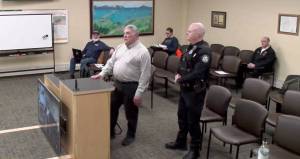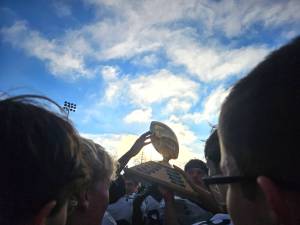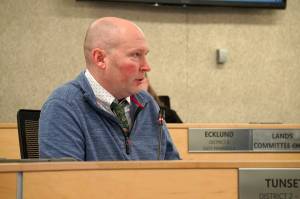Alaska’s PFD: Much more than a check
Published 8:48 pm Thursday, March 10, 2016
Gov. Jay Hammond fought hard to create the Permanent Fund dividend program in order that a portion of one-time oil wealth will be shared equally with all future Alaskans. He specifically stated that earnings from the fund belong “to the people, not the government.”
Now in the face of a $3.5 billion shortfall, Gov. Bill Walker’s Sovereign Wealth Plan (SB 128) and Sen. Lesil McGuire’s fiscal plan (SB 114) propose to solve this problem by rewriting state laws such that the incredible economic engine of the Permanent Fund will no longer be working for the people, it will be working for government.
In both plans, future dividends eventually lose value because they are tied to oil royalties. Once oil can no longer be profitably pumped down the Alyeska pipeline (now at one-quarter capacity), royalties will end and so will the dividend.
Sen. McGuire’s plan promises $1,000 from the general fund, but there are two problems with this idea. First, no statute can bind a future legislature, and second, inflation will eventually destroy McGuire’s $1,000 payout. Given the same rate of inflation since the first dividend in 1982, a $1,000 dividend distributed one hundred years from now will be worth $153, on its way toward zero with the passage of time.
Over the last three and a half decades, the legislative appropriation process has been one conducted primarily as a tension between special interest lobbyists and the people’s elected representatives. The citizens’ one-person, one-vote relationship appears feeble compared to the daily interaction between lobbyist and legislator where long-term friendly relationships are cultivated through after-hours socializing and campaign contributions. There are clear winners in the creation of a budget under the pressure of political hard-bargaining.
By contrast, the Permanent Fund dividend promises everyone an equal share; there is no “privileged class.”
Both Gov. Walker’s plan and Sen. McGuire’s plan envision an endowment concept for budget stability. In these plans, state revenues, especially Permanent Fund earnings, flow directly into an endowment or common fund, available for appropriation.
For example, in the governor’s plan, $3.3 billion in endowment funds is available each year for expenditure. The problem with this idea is that no real accountability will exist for this base level of spending. When legislators have to tax citizens to pay for government, someone “cares” how that money is spent — the taxpayer. The group that will care most about how endowment funds are spent are special interest lobbyists.
In the recent statewide Senate hearing Alaskans strongly argued to preserve the Permanent Fund dividend while cutting the budget. Most Alaskans favor a state income tax so it should be enacted now. About 45 percent of households nationwide pay no federal income tax and so would pay no state tax.
In order to spread the burden of paying for government expenses, a small state sales tax is almost certainly necessary. That way, all Alaskans and our visitors would share in paying for services.
The main effort must be to reduce the size of the state budget but this is difficult and takes time to accomplish intelligently. To give the legislature time, our dividends must be shared temporarily with government. Our legislature presently has complete control over the dividend payout. They can fund a smaller dividend during this crisis and appropriate the remaining earnings to close the budget gap, giving us time to find ways to cut the budget.
The Permanent Fund dividend is a powerful idea and therein lies its greatness. The dividend idea is that all future Alaskans share equally in one-time wealth creation. Just as the idea of democracy liberates the individual from powerlessness over governing his own life, the dividend idea liberates the individual, in a modest way, from controlled or no access to a share of the wealth inherent in our land and in our social contract.
We live in a wealthy state; the dividend defines us as owners of this wealth. The dividend concept is unique among modern societies; a grand experiment, one whose value we are only just beginning to comprehend. This idea goes way beyond just getting a $1,000 check.
If you are concerned about inequality in modern society, the Permanent Fund dividend might be the only curative solution that all of us can believe in regardless of political persuasion. We must not let this grand experiment disappear into history. Please support Sen. Bill Wielechowski’s SJR1 to protect the dividend.
Alexander Hoke is a 40-year Alaska resident, currently engaged in property management and construction. His work experience also includes legislative policy analyst, president of a Rural Electric Utility (GHEA), and service as a City and Borough of Juneau Assemblyman.





